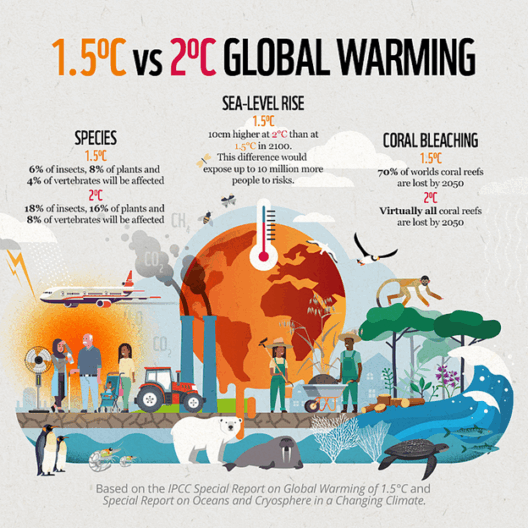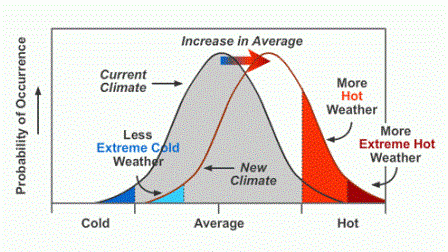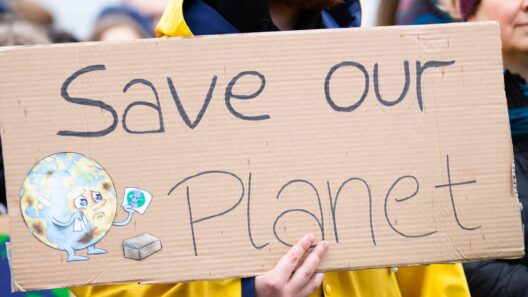Global warming is not a distant worry; it is an immediate reality that manifests in ways that affect each of us directly in our daily lives. Considering this, it is crucial to grasp how these changes present themselves and the underlying implications that often go unnoticed. With accelerated climate change, we find ourselves on the cusp of an era where atmospheric transformation manifests tangible effects on our environment and personal well-being.
One of the most conspicuous signs of global warming is the rise in temperatures globally. Average temperatures have increased significantly in recent decades, with particular regions experiencing heatwaves with increasing ferocity. This phenomenon is not merely an inconvenience; it poses severe health risks. Heat-related illnesses, such as heat exhaustion and heat stroke, are on the rise, affecting vulnerable populations, particularly the elderly and those with pre-existing health conditions. The implications extend beyond individual health; increased temperatures strain public health systems and emergency services, leading to elevated healthcare costs for everyone.
Moreover, the warming climate is complicit in the intensification of extreme weather events. Hurricanes, wildfires, droughts, and floods are becoming more frequent and severe. The disastrous consequences of these events are immediate and far-reaching, impacting infrastructure, disrupting daily life, and leading to economic losses reaching billions. Businesses struggle to cope with these costs, while communities often face devastating displacements. Consequently, the fallout of extreme weather underscored by climate change reverberates through every facet of society, creating a ripple effect that disrupts livelihoods, food security, and overall economic stability.
As temperatures rise, the polar ice sheets and glaciers are retreating at an alarming rate. The ramifications of this are profound and include rising sea levels that threaten coastal cities and ecosystems. This threat is not merely theoretical; in many places, we are witnessing tangible encroachment of seawater into homes and businesses. Coastal erosion and persistent flooding can render vast areas uninhabitable, leading to a displacement crisis that could displace millions of people globally. As individuals witness their communities jeopardized by rising oceans, the psychological toll amplifies the urgency for collective action.
In addition to environmental disruption, global warming directly impacts agriculture. Changing weather patterns alter growing seasons, create water shortages, and introduce new pests and diseases that threaten crop yields. Farmers are finding it increasingly challenging to maintain stable production levels, which can lead to higher food prices and reduced availability of staple crops. This reality can exacerbate hunger, particularly in vulnerable populations, where food insecurity becomes an increasingly pressing issue. Recognizing this interconnectedness is key; it signals how climate issues can escalate into larger socio-economic crises affecting communities worldwide.
Animal species are also under siege due to global warming. Habitat loss due to changing climates drives wildlife to extinction at unprecedented rates. For many species, migration patterns are disrupted, forcing them into unfamiliar territories where adaptability may not suffice. This extirpation of biodiversity has consequences that ricochet through ecosystems, thereby affecting natural services that humans rely upon, such as pollination and clean water. As we lose species at alarming rates, we might find ourselves grappling with the realization that our ecosystem’s health is inexorably linked to our own survival.
Global warming also has implications for air and water quality. Pollution levels can worsen as temperatures increase, resulting in a higher concentration of smog and allergens that affect respiratory health. Additionally, warmer temperatures affect water resources, leading to algal blooms that contaminate drinking water and harm aquatic life. The quality of essential resources is dwindling, showcasing how climate change is intricately linked with public health and environmental integrity.
While the consequences of global warming may seem overwhelming, it’s crucial to recognize the importance of collective action. Individual choices, coupled with systemic changes, can significantly contribute to mitigating climate change impacts. Adopting environmentally friendly practices such as reducing waste, conserving energy, and supporting sustainable businesses significantly improves the vitality of our environment. Moreover, advocating for policies that prioritize clean energy, emissions reductions, and conservation initiatives can instigate meaningful progress toward sustainability.
Education plays a pivotal role in disseminating information about climate change. Awareness empowers individuals, enabling them to make informed choices, encourage sustainability in their communities, and hold institutions accountable for their environmental impact. By fostering an understanding of the interconnectedness of ecosystem health and human welfare, we can cultivate a culture that prioritizes environmental stewardship.
Discourse surrounding global warming should not remain an esoteric conversation reserved for specialists; every individual has a role in this global narrative. Addressing climate change effectively is not solely about collective responsibility; it’s about safeguarding our future, our health, and our communities. As the climate continues to shift and evolve, we must acknowledge the urgency of the situation and rise to the occasion. By acknowledging that global warming directly affects us, we can inspire a movement rooted in empathy and action, which is essential for creating a sustainable legacy.
In summary, the effects of global warming are inescapable and immediate. From health risks and economic instability to environmental loss and food insecurity, the implications are profound and multifaceted. By understanding the impacts of climate change on our lives, we can inspire action and advocate for change that will benefit the generations to come. Your awareness and active participation in combating climate change can create ripples of transformation, challenging the status quo and securing a healthier planet for all.







